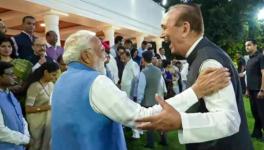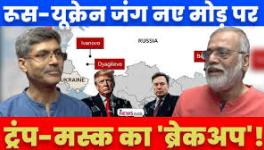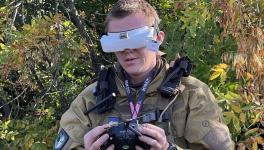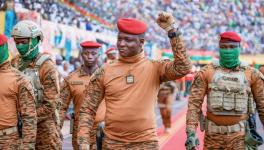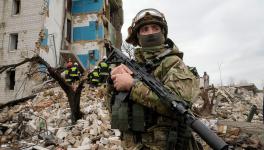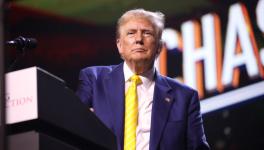Putin Wins With a Record-High Vote Share
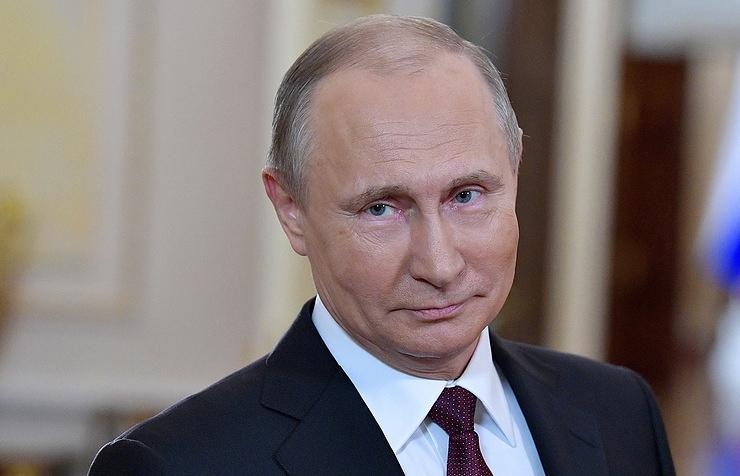
Amidst increasing threats of sanctions and punitive measures against Russia, Vladimir Putin has yet again won the presidential election on March 18, 2018, with a record-high vote share of 76% - highest ever garnered by any Russian President since the collapse of the Soviet Union - breaking his own previous record of 71.9% with which he was elected for the second full term in 2004.
Second in the race, lagging far behind with a 12% vote-share, was Pavel Grundinin, the candidate from Communist party who, in his manifesto, had called for nationalisation of many industries, raising taxes and for free national healthcare and education. Calling it the “filthiest” election, Grundinin has complained about voting irregularities. Numerous videos have been shared on twitter, allegedly capturing ballot stuffing. Speaking of these violations, the Head of Central Election Commission said, “Thank goodness, it's all rather modest so far.”
The decision to field Grundinin - a millionaire who had supported Putin’s election bid in 2000 and who was until a few years ago a member of United Russian Party which espouses “Russian conservatism” - was criticized by many, including communists. Some commentators have argued that “Grudinin’s only motive for running in an election that he knows he will lose is to raise his political profile and ward off hostile investors who might covet” the valuable Lenin state farm of which he is a director, according to a report which pointed out that he is not even a card-holding member of the party.
Around 6% of votes was cornered by Vladimir Zhirinovsky of the LDPR - a controversial ultranationalist who had gained a notoriety for indulging in violent acts such as fist-fighting after a heated television debate, starting a brawl in the parliament by spitting on a legislator etc. Described by many as a fascist, Zhirinovsky had promised that, if elected, he would amend the constitution to change the designation of “President” to a “Supreme Ruler”, and would expand the Russian boundary to that of former Soviet, and have the Russian Army standing at the USSR border as on January 1, 1985.
Deemed to be the “most desirable single woman” in Russia by a fashion magazine called Tatler, Ksenia Sobchak - an actress, T.V anchor and politician - was the only woman contesting in the presidential race. Daughter of Anatoly Sobchak, a law professor who had taught Putin at Leningrad and for whom Putin had publicly expressed his respect at a press conference after the 2017 BRICS summit, Ksenia had said in a press conference last year that she would “refrain from criticizing the personality of Vladimir Putin”, citing the close relationship he had with her father.
Campaigning for privatization of all state-owned corporations, dismantling state’s control over all sectors of economy and limiting its share in enterprises, reforming tax and regulatory regimes to “stimulate the development of private entrepreneurship”, Kseania garnered less than 2% of the votes.
Alexei Navalny from the Progress Party, an anti-corruption activist who had been at the forefront of many protests rallying thousands of mostly youngsters against Putin, was widely regarded as the only viable rival to Putin, although polls suggested his chances of defeating Putin was scant. Nevertheless, he was barred from contesting elections on account of fraud charges for which he was convicted in a trial criticized by the European Court of Human Rights. Calling the charges baseless and politically motivated, Navalny had tweeted after the Russian Supreme Court upheld his conviction in a verdict last month, “Putin and his gang of thieves are afraid to face us in the elections. [And] rightly so: We will win.”
While he called for boycott of elections, the Russian government, determined to ensure a voter turnout at least as high as the 2012’s 65%, laboured to make the elections attractive. “There was music, discounted food for sale and games for the children. At one Moscow polling station a woman dressed as a clown shouted out historical questions and rewarded right answers with a chocolate bar,” New York Times reported. “The region of Omsk offered free iPhones for voters who turned up in the best costumes, prompting a parade of voters who came as Santa Claus or a Roman legionnaire.” According to Russia’s Central Election Commission, voter-turnout had surpassed the 2012 figure and reached 67.4%, as on 6.52 a.m. in Moscow this morning.
With the 2012 amendment to the Russian constitution which extended the president’s term from four years to six, Putin has, after this victory, secured his seat until 2024. However, the constitution prohibits the same person from serving in President’s capacity for more than two consecutive terms. This has led many analysts to speculate that Putin, unwilling to relinquish power, might push for another amendment to remove or extend the term limit in order to carry on as President after 2024, when he would be 72 years old. In 2008, when the he had already served two consecutive terms as president, Putin overcame this constitutional hurdle by serving as a Prime Minister instead, while his protege Dmitri Medvedev took over Russia’s presidency for a term, before Putin came back to the helm in 2012.
Get the latest reports & analysis with people's perspective on Protests, movements & deep analytical videos, discussions of the current affairs in your Telegram app. Subscribe to NewsClick's Telegram channel & get Real-Time updates on stories, as they get published on our website.












